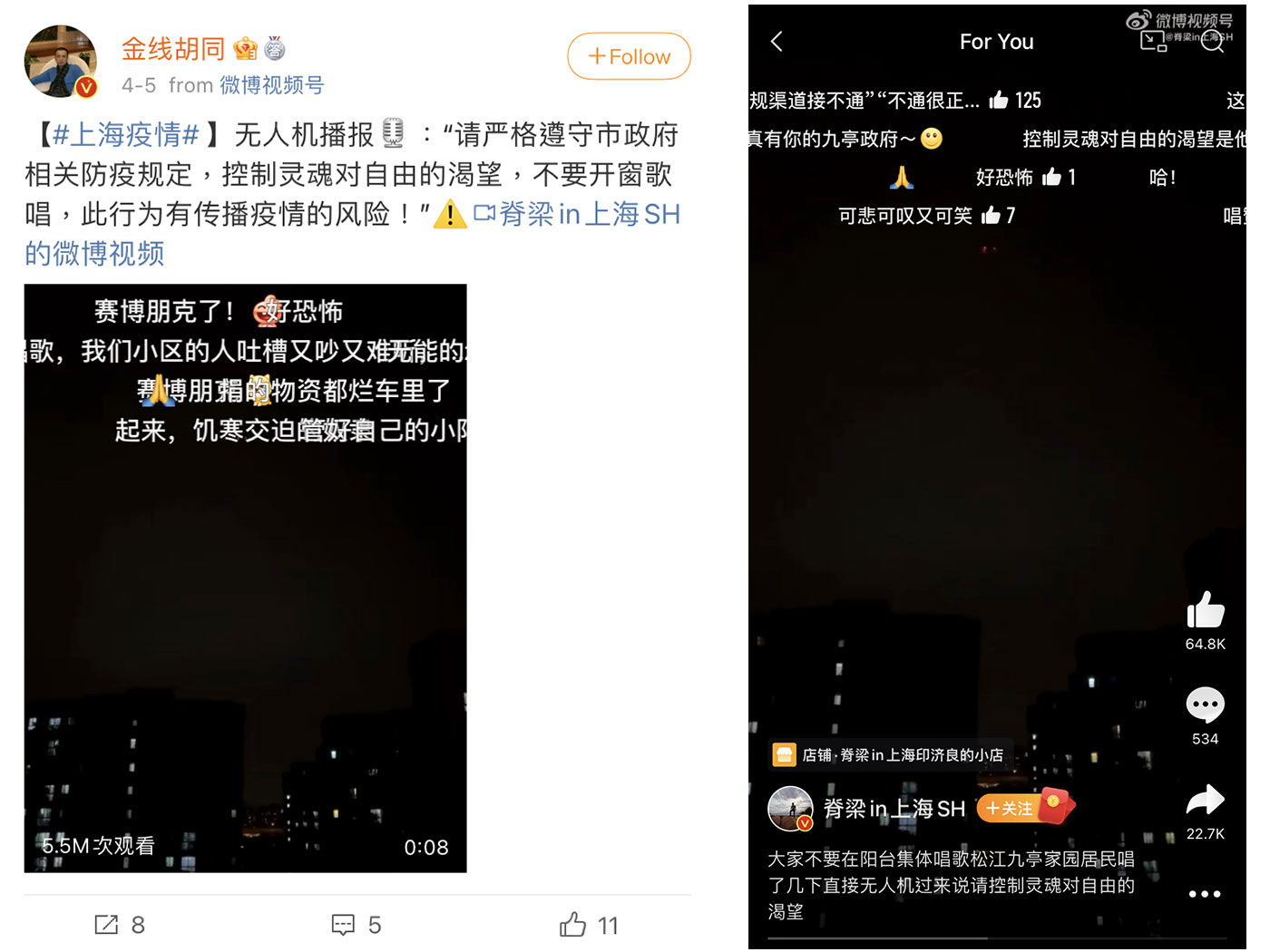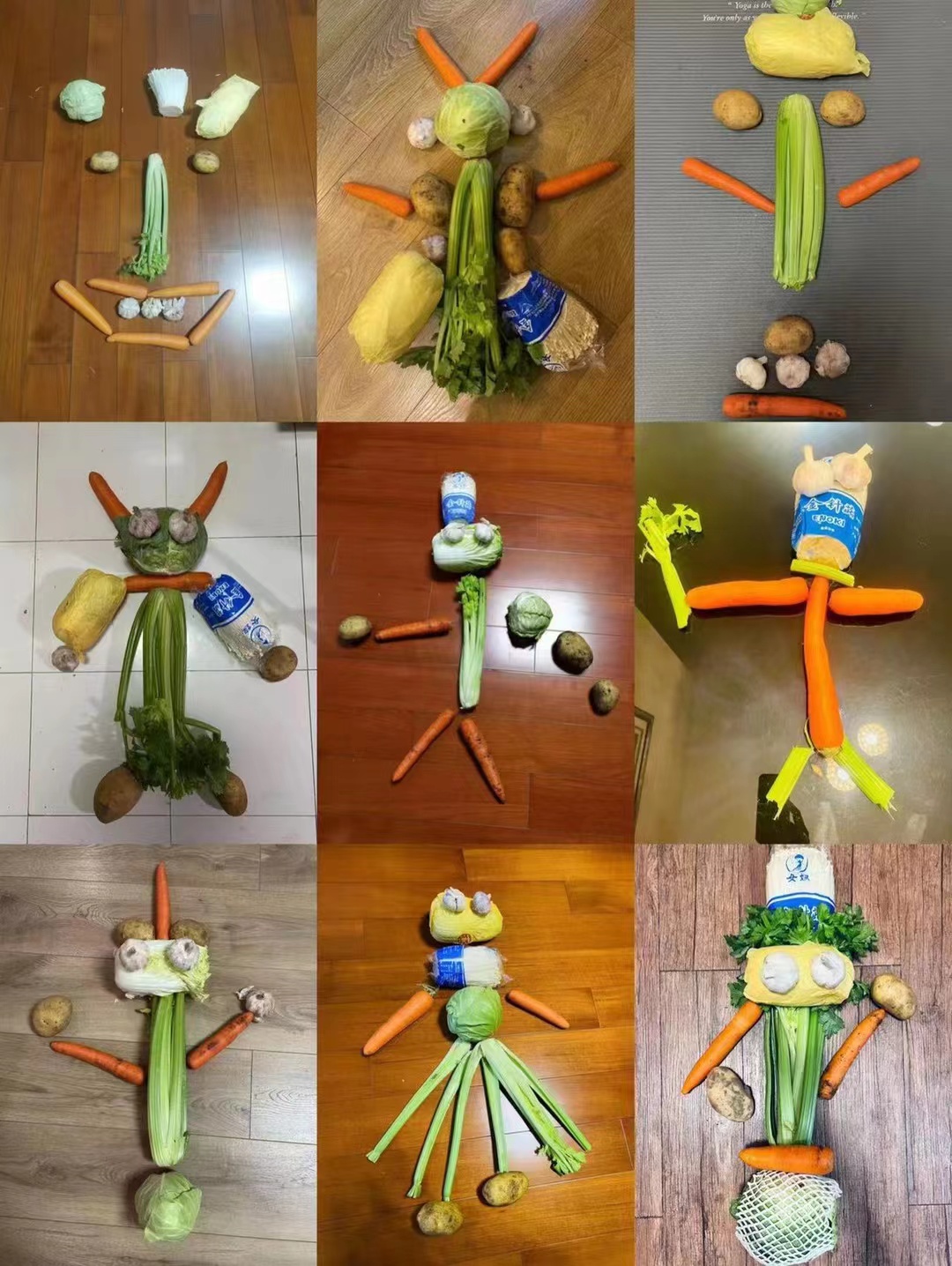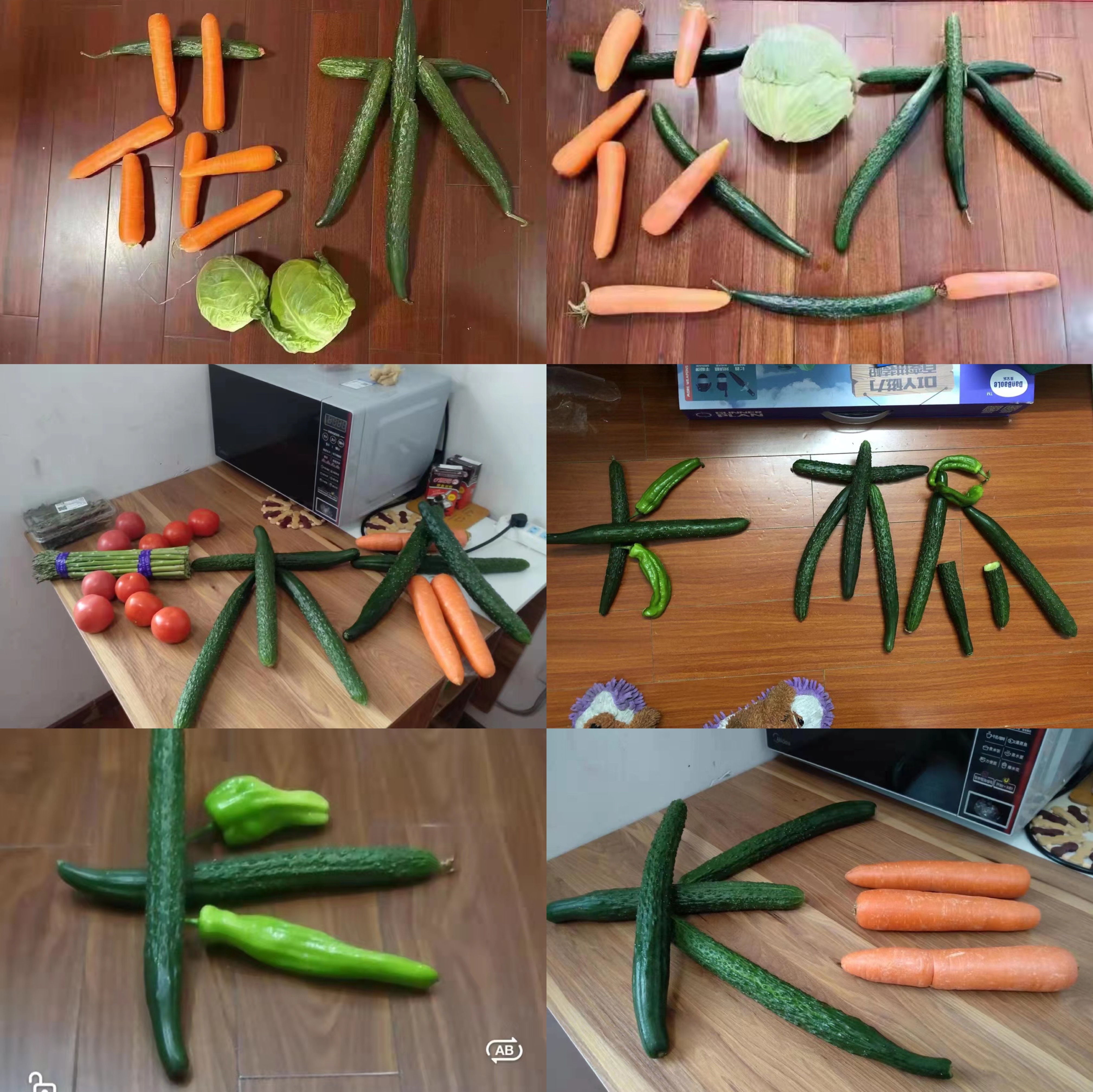
Lockdown Sound Diaries
Podcasting and Affective Listening in the Shanghai Lockdown
In the spring of 2022, two years after the Wuhan lockdown of 2020, the megacity of Shanghai—an urban agglomeration that is home to more than 26 million people—came under lockdown. Once acclaimed by officials and experts as one of China’s best-managed cities during the Covid-19 pandemic, Shanghai shocked the world with its tough lockdown policies. Logistics flows were cut; food prices skyrocketed. Many migrant workers were kicked out of their rented apartments and became homeless. At the time of writing, in mid April 2022, depending on where one lives in Shanghai, some people have not been able to step outside their buildings for more than six weeks, except to take nucleic acid PCR tests. Many still have with no inkling of exactly when they will be ‘released’ from their home. Elderly people with little or no knowledge of online shopping have starved alone in their apartments. Infants and children with positive PCR test results have been forcefully separated from their parents—unless their parent(s) also test positive and can therefore accompany them to a quarantine facility. People with chronic conditions such as cancer and diabetes have been unable to receive their life-sustaining treatments. Lists of people who died during lockdown—rather than from the virus itself—started circulating on social media but were quickly censored. Shanghai—once proud of being a ‘magical metropolis’ (魔都)—has been experiencing one of the most surreal, tragic moments in its history.
The city’s soundscape has been filled with desperate cries from ordinary citizens. In a viral six-minute video titled ‘The Sound of Spring’ (四月之声), the grey, monochrome urban landscape serves as a stark contrast to soundwaves from all walks of life. As a bird’s-eye view of the ghostly city slowly moves along, you start hearing voices filling the empty space: exhausted doctors, trapped truck drivers, elderly citizens helping out neighbours, desperate mothers begging for medicine for sick children, crying neighbourhood committee officials, hungry young migrant workers, an angry crowd demanding food … The sound collage, on its initial release on social media around 20 April by an anonymous internet user going by the pseudonym ‘Cary’, was widely shared and, unsurprisingly, quickly censored. Similar to the relaying of the story of the ‘Whistle-giver’ (发哨子的人) Dr Ai Fen during the Wuhan lockdown (Yang 2022), netizens started relaying, sharing, and reposting both the video and the audio clips of ‘The Sound of Spring’ across different media platforms, hoping the world would hear those voices.
As well as the people’s cries, the soundscape in Shanghai has also been marked by electronic loudspeakers carried by robotic dogs and drones. On 29 March 2022, a headless robotic dog, carrying an electronic loudspeaker on its back that broadcast a pre-recorded message, walked along an empty, sunny street inside a residential compound in Shanghai (Figures 1 and 2). The loudspeaker’s female voice repeated: ‘Wearing masks, frequently washing hands, measuring temperature, frequently disinfecting, less gathering, frequently ventilating, scientifically preventing pandemic.’ On the evening of 5 April 2022, ominously alternating red and white lights appeared in the dark sky, circling above a residential compound in Shanghai. It was a drone carrying a loudspeaker broadcasting a digitised female voice warning residents to ‘strictly obey the government’s anti-pandemic regulations, control the soul’s yearning for freedom’ (控制灵魂对自由的渴望), and ‘not to open your windows to sing’ (Figures 3 and 4). Both scenes were captured in short videos and have been widely watched, commented on, and shared by netizens on social media platforms such as Weibo and WeChat.


As an anthropologist who lived and worked in Shanghai in a residential building from 2019 to 2020 during nationwide lockdowns, these voices have been haunting me. In the spring of 2022, my friends and family in Shanghai have been constantly on the lookout for the loudspeakers calling them to take PCR tests. Had I not left Shanghai in early 2021, I would have been one of those subjected to the intrusion of loudspeaker noises, day and night. As sociologist Guobin Yang writes in The Wuhan Lockdown (2022: 44), one of the key features of China’s campaign against Covid-19 is ‘its warlike character—its loudness … The loudest noise came from loudspeakers’. Yang traces the role of loudspeakers and loud noises in public spaces during the pandemic in China back to the Mao Zedong era when they were an integral part of political mobilisation and mass discipline. Since the 2010s, the Chinese Communist Party (CCP) has revived the use of loudspeakers in rural and urban spaces through a ‘new digitalized loudspeaker infrastructure’ (Yang 2022: 44). During the 2020 Wuhan lockdown, this sound infrastructure was mobilised by village and municipal officials in various settings and styles as part of the anti-Covid campaign (Guo and Hao 2021; Li and Zhang 2020; Zhang and Chow 2021). Two years later, during the 2022 Shanghai lockdowns, the loudspeakers coupled with the use of robotic dogs and drones are both a continuation of the CCP’s ongoing efforts to mobilise loudspeakers for political campaigns in the digital era and evidence of a further alienation of human bodies detached from digitised monotone voices.
Lockdown Sound Diaries and Affective Listening
These eerie, almost apocalyptic noises do not constitute the whole soundscape of the Shanghai lockdown. While haunted by loud, machine-generated noises, people have also been comforted by soft sounds—voices describing everyday scenes inside domestic spaces; voices expressing feelings of anxiety, anger, hope, and a fleeting sense of shared joy; the sounds of children, birds, the wind, and rain outside one’s windows. In March and April 2022, at the height of the Shanghai lockdown, I listened to these sounds on a daily basis through podcasts on the popular podcast app Xiaoyuzhou (小宇宙, or XYZ). Officially launched in March 2020 during the Wuhan lockdown by a Shanghai-based tech company, the XYZ app has been growing rapidly in terms of the numbers of podcasts and listeners. The app specialises in promoting podcasts (播客) and fostering podcast communities, distinguishing itself from other audio apps such as Ximalaya.FM, which feature a wide variety of audio programs such as audio books, music, comic dialogues, and news briefs (McHugh 2022: 223–25; Xu and Morris 2021). Between 27 March and 16 April 2022, I listened to 49 podcast episodes with topics directly related to the Shanghai lockdown (Table 1). The full titles of podcasts and the names of the podcasters cited in this essay are modified to protect the identities of the people involved, and I mostly use acronyms to refer to specific podcasts (for more details, see Podcast Entries in the appendix to the essay).

Inspired both by Yang’s analysis of lockdown diaries and by one of the original titles of those episodes, ‘Epidemic Diary’ (疫情日记) by SJSW, I approach these podcasts as ‘lockdown sound diaries’. There are some basic similarities between a written diary and a sound-based diary: both record everyday life experiences and emotions; both can be posted and shared on digital platforms such as XYZ, Weibo, and WeChat; both reach readers within and beyond China. But there are also some significant differences. First, and most obviously, unlike written diaries, which are accessed by reading, one listens to a sound diary. When one reads a written diary entry, it is hard to pay attention to other things at the same time, but when one listens to a podcast, it is possible to multitask and use the sound as a form of company (陪伴) or background (背景). Second, a written diary is often updated daily while a sound diary is updated less frequently due to the editing process. The podcast creators and speakers nonetheless document their daily experiences via sound. Third, a written diary usually has a single author while sound diaries can have more than one speaker. Of the podcasts to which I listened, as well as seven monologues and five dialogues between married couples, 37 episodes were conversations or sound collages with more than one speaker (see Table 1). In a sense, the lockdown sound diaries can be considered as both a monologue and a collaborative form of sharing one’s life, emotions, and observations through dialogues among multiple speakers. Finally, a sound diary contains many elements that are hard to communicate in a written form, such as changes in pitch and volume, laughter, background music, ambient sounds, and even equipment noises from phones or recorders—all of which are open to the aural and affective perceptions of podcasters and listeners.
To observe, experience, and analyse these lockdown sound diaries, I listened to podcasts, read listeners’ comments, joined in by commenting myself, and took listening notes (akin to the classic notion of field notes). I view my methodological as well as analytical approach as being what Jing Wang (王婧), an anthropologist of sound studies from Zhejiang University, calls ‘affective listening’. Inspired by the art and philosophy of sound, Wang writes:
Affective listening suggests exactly such a relation: feeling into the energy of one’s sonic surrounding, to be affected by intensities, forces, and flows of sounds. In Chinese medicine, the ear is connected to all parts of the body. The ear is the body. Affective listening is a sonic way of being with/in a sonorous poetic space infused with its creators’ intelligence and sensations. (Wang 2016: 124–25)
This embodied act of affective listening propels listeners to understand the soundscape not as an aural-informational space but as a mediated ecology abundant in meanings and emotions. When listening, I immersed myself in the sounds and sensations, as many listeners would do in everyday life. I laughed at podcasters’ jokes, cried when hearing a sad story, felt angry when people talked about their sense of helplessness, and from time to time, even talked back to the voices. In a sense, affective listening allows a listener to immerse themselves in the scenes, stories, emotions, and atmospheres created through podcasts and digital mediation of everyday life settings. This approach also enables me, as a listening ethnographer, to move constantly between a text-based and an audio-based analysis of digitally produced content to better grasp its affective impacts on the listening public.
While many topics emerged from the podcasts to which I listened, the following sections focus on two aspects of the lockdown sound diaries: women’s voices and food. The ubiquitous mentions of food in all 49 podcasts forced me to ‘hear’ food as a medium through which people in Shanghai connect to one another. Although women played a crucial role as food preparers, group-buying coordinators, and frontline workers during the Shanghai lockdown, it was noticeable that their voices were constantly downplayed or overlooked in the CCP’s official media reports.
Women’s Voices
In contrast to the digitalised, war-like tone of the female voices being broadcast through loudspeakers, the podcasts made by or featuring women have emerged as a significant part of the lockdown sound diaries. Women constitute 66.2 per cent and men 33.8 per cent of the 151 podcasters/speakers in my sample of 49 podcasts. This trend correlates with a survey conducted by VoiceFirst (2021), a podcast company based in southern China, which found female podcasters made up 58 per cent of 257 respondents. Yet, these statistics might conceal more than they reveal about women’s long overlooked sound-making practices in modern China.[1]
Here, specifically during the Shanghai lockdown in 2022, we need to read beyond the numbers and technologies to understand what narratives and emotions they have been sharing with affective communities who also speak back to them via written comments.[2]
Among the 151 podcast hosts and speakers, at least 11 people shared their detailed experiences as neighbourhood group-buying coordinators. Significantly, they were all women. This is not to deny the role of men as coordinators, logistics workers, technical supporters, and so on as part of mutual aid groups during various lockdowns across China. Rather, as Guobin Yang notes in The Wuhan Lockdown (2022), this highlights how women’s ubiquitous role as civic organisers and labourers has often been overlooked or downplayed both online and offline. During the 2020 Wuhan lockdown, feminist hashtag campaigns such as #StandByHer and #MakeWomenLaborersVisible were widely circulated on social media to raise awareness of women’s contributions during the pandemic, and were also documented in the lockdown diaries of ordinary citizens (Yang 2022: 117–23). In the 2022 Shanghai lockdown sound diaries, the female speakers are of diverse backgrounds—including: migrant workers, white-collar workers, community workers, entrepreneurs, college students, medical staff and doctors, and mothers. Most speak about their own and/or their friends’ experiences of civic organisation without resorting to feminist hashtags.
Some podcasters resorted to humour in praising coordinators without directly mentioning the role of women. In the podcast Busy Friends (JZMM), the two female hosts, named Jin and Jia, sound as though they are having a regular phone chat. They had been trapped at home since 12 March and 1 April, respectively, and had both become active group-buying coordinators in their neighbourhoods. Besides talking about their experiences of buying food for themselves and their neighbours in the episode they dedicated to the lockdown (12 April 2022), they also shared their experiences on other social media platforms such as Weibo. On 7 April 2022, Jia posted a poster from a TV drama called My Chief, My Regiment (我的团长我的团) to her Weibo account and described the figure it showed as ‘the most respected person in every residential community in Shanghai now’. The show was a popular Chinese TV series released in 2009, about a Chinese logistics worker who pretended to be an army chief (团长) and led his regiment to fight against the Imperial Japanese Army in 1942. This image ironically resonated with the temporary logistics role of group-buying coordinator (also called 团长) taken on by many women during the war-like conditions of Shanghai under lockdown. By 17 April, this post had garnered 300 likes and was reposted by 115 users. In their sound recording, Jin and Jia laughed at this sarcastic reference to a nationalist TV drama as a subtle subversion of a stereotypical image of a patriotic, male logistics worker in times of emergency.
Some podcasters combined a sense of humour with a more direct reflection on their identities as women. Ms M’s Lounge (MJKT), a podcast born during the 2022 Shanghai lockdown, features three women living under the same roof. With a round of hand-clapping and cheers, the host, Ms M, opened the first episode (6 April 2022) by introducing herself as a former media worker and current small business owner; the other hosts, Fei and Airu, are her roommates. Their laughter had the effect of transporting listeners to a college student dorm room. They cheerfully exchanged what it felt like to live as a woman-only mini-collective, with everyone taking responsibility to buy and cook food. In their second episode (9 April 2022), Ms M invited Fei and another friend, Jiao, to discuss how they had become group-buying coordinators for a variety of daily necessities—rice, flour, milk, eggs, and cooking oil—in the neighbourhood. As well as assisting the elderly, they also helped some foreign expats join a group-buying relay (团购接龙) on WeChat. As so many people were constantly on the lookout for food and texting many messages in a short period, it was difficult for expats with limited or no Chinese-language skills to catch the relay information. ‘How can you explain this to an expat if their Chinese-language skill is limited?’ Ms M asked, raising the pitch of her voice. ‘Yes, it’s hard,’ Jiao responded with a Chinglish accent, ‘So I said, “You see the [Chinese characters] 接龙, you order!”’ They went on to discuss whether ‘women hold up over half the sky’ (妇女能顶大半边天) and ‘why most of the coordinators are women’ (为什么团长里大多数是女生). Jiao observed that in many groups the most active buyers and coordinators were women, while men tended to do more physical or technical labour.[3] Ms M added: ‘I’m not intentionally bringing up the topic of feminism … But I also know quite a number of gay friends who are coordinators. In a critical moment like this, we need to rely on our sisters.’ While Ms M was speaking, the other two speakers shouted in the background: ‘Sisters, stand up!’ Many of the 35 listeners who left comments expressed their appreciation of these discussions. One listener, LLJC, wrote: ‘Men do not participate enough in family life while women basically take care of all chores and have to buy living necessities and food items’ (12 April 2022). By critiquing the gendered division of labour and extending a sense of sisterhood to the LGBTQ community in Shanghai, Ms M and her friends made their listeners feel heard as well.
Food as a Medium
Food has become a primary source of anxiety and a daily preoccupation during the Shanghai lockdown. Stuck at home, residents have been struggling to buy food due to large-scale logistics failures. Food delivery platforms have failed to take online orders from anxious and even desperate buyers. Residential staff have delivered government-organised food packages sporadically in the form of ‘blind boxes’ (盲盒). These sanitised bags and boxes sometimes contain vegetables with pieces missing or starting to rot. To convey this sense of food insecurity, JJ and her co-host from the podcast Room403 (403S) opened one of their episodes (10 April 2022) with a segment of a lockdown song titled ‘Let’s Grab Food Together’ (大家一起抢菜). Sung in the local Shanghai dialect in a rap style, the lyrics captured the collective mood of panic, anxiety, sarcasm, and helplessness. On the one hand, lockdown policies, rather than the virus itself, have ironically led both the poor and the rich in this megacity to scramble for food (Wang and Lindtner 2022). On the other hand, the tough lockdown policies have pushed the have-nots further into the abyss of destitution, forcing them to expend precious resources to buy meagre amounts of food at inflated prices. It is thus perhaps not surprising that all 49 podcasts I analysed addressed the question of food in one way or another.
Tomorrow (MRZL), a podcast started by a group of young volunteers during the Wuhan lockdown in 2020, released three episodes on food between 27 March and 14 April 2022. As a group dedicated to ‘sustainable living’ (可持续生活) in the ‘age of climate and environmental crises’, they have in the past two years been promoting various issues related to food and sustainable lifestyles. In their first episode during the Shanghai lockdown (27 March 2022), one of the organisers collected from her eight friends in Shanghai responses to the following prompts: 1) How is life now? 2) How do you feed yourself every day? 3) Do you share self-made food? 4) Share everyday details of life during the lockdown. 5) What do you want to do most after the pandemic? Respondents remained mostly positive in tone as they were hoping this lockdown phase would soon pass. In the second episode (12 April 2022), three women who lived alone in Shanghai shared their personal food experiences. One, Taro Monster, was a migrant worker, who, during the first wave in 2020, was trapped in her hometown in Hubei and now found herself trapped again, in Shanghai in 2022, in an apartment without a refrigerator or cooking utensils. ‘Both [experiences] have been chaotic,’ she said, ‘but this time I’m lucky to have good neighbours.’ Her residential compound was officially locked down on 31 March supposedly for four days. Her food supplies would only last those four days. Her neighbours not only shared several WeChat groups for purchasing food together, but also helped cook for her. The experiences of these women resonated with listeners. One listener, YJ, commented: ‘I got to know many neighbours during this lockdown. People help each other in the same building, which is the most precious warmth and love I’ve felt during the pandemic’ (13 April 2022).
While MRZL mostly focuses on food and lifestyle in its programming, accounts of mutual aid and food-sharing among neighbours are ubiquitous in all the lockdown sound diaries. Like MRZL, other podcasters shared either their own food experiences or asked what others thought about group-buying and food procurement as everyday survival strategies. The longest episode sharing daily routines and strategies—such as stocking up on food, prepping an emergency kit in case one tested positive, and taking care of oneself psychologically—went for an epic 172 minutes (FHLP, episode of 10 April 2022). Like the comment by YJ in MRZL’s second episode, other listeners across different episodes often commented on food-related issues. Some complained about the government-organised food packages they received. Some craved junk food, such as fried chicken and chips. Others shared their experiences of effectively stocking up on non-perishable food or buying food from different WeChat mutual aid groups. Yet others reflected on their parents’ and grandparents’ habit of stocking up on food and started to understand what it meant to live through an era of scarcity. For both podcasters and listeners, talking about food binds them together.
Among all these sound diaries, Grey, the host of the podcast Confession (ZDJD), theorised about food as a ‘medium’ (媒介). ‘During the pandemic, food reconnects us,’ Grey said. ‘Food is like a medium which spreads warmth, love, and care among everyone’ (3 April 2022). He then interviewed Na, a young woman from Fujian and a fervent food market lover, to share her experience of being one of the group-buying coordinators during lockdown. In the show’s notes, Na shared photo collages of pictures made from the vegetables from government-organised food packages taken by her neighbours and friends and published in WeChat groups (Figures 5 and 6). After 51 minutes of talking about food, food buying, and food sharing, this episode ended with a background song titled ‘I Don’t Want You to Face This Chaotic World When You Are Lonely’ by Taiwanese band COM’Z. One listener, LDY, left a lengthy comment praising the production of this episode as ‘soothing one’s heart’ (安抚人心) and agreed with Grey’s message on ‘human connection’ (人和人的连接) through food and the importance of ‘re-establishing neighbourhood social networks’ (重新建立附近的社交网络) during lockdown (7 April 2022).


In times of human-made disasters and material scarcity, the constitutive and codependent relationships between life-worlds and digital technology become ever more salient. As communication scholar Peter Zhang (2013: 177) points out, ‘food as a “medium” (as McLuhan understands the term) is primarily the discursive formation about food that not only fashions a people’s beliefs, values, and practices but also constitutes their taste’. In other words, we are not only what we eat or what we do not eat; we are also what we talk about when we discuss food, how we get food, and what meaning we make out of food. While the topic of food is mediated through sonic technology, food becomes a social medium through which sounds are made, human connection strengthened, and a sense of auditory publics forged in digital spaces during the Shanghai lockdown.
Beyond Political Depression
During the 2022 Shanghai lockdown, sound can be oppressive as well as soothing, cathartic, and liberating, even if just momentarily. Food becomes a medium—physical, social, and political—that binds and divides friends, couples, and neighbours in both online and offline spaces. Amid a pervasive sense of ‘political depression’ (政治性抑郁, as discussed in the episode of 10 April 2022 of the YYDHOC podcast), making fun out of bitterness is a survival strategy. In the podcast Nothing to Talk (WSKT), three women managed to physically get together for a recording on 31 March 2022, one day before the Shanghai district of Puxi came under official lockdown. In their sound diary, I hear bags zipping, items being exchanged, cars passing by, birds chirping, and food being chewed as they talk and laugh together. They left their apartments to stock up on food, to exchange daily necessities as gifts, and to record their conversation in the open air in a small park along a riverbank. Listening to their laughter in the riverbank park, I cannot help but recall what feminist scholar Sara Ahmed (2018) says in her Feministkilljoys blog: ‘[S]urvival for some requires crafting a life from shattering experiences, the kind of experiences that might leave you fragile, close to the edge, “at the shoreline”.’ The ambient sound constantly reminds me of the temporal and spatial contingencies under which these women lived along the edge of anxiety, fear, anger, and joy. ‘We just want to make fun out of bitterness [苦中作乐].’ They laugh: ‘Can’t we? Aren’t we allowed to be happy?’ (WSKT, 1 April 2022). In contrast to the loudspeaker voices circling in the sky and crawling through the residential compounds, the women’s laughter strikes me as a defiant gesture to create their own voices and happiness—however small or fleeting—in a time of uttermost uncertainty.
Postscript: A Tare’s Hope for Spring
In a time of crisis, poetry brings hope and redemption. George Herbert, a Welsh priest and poet born at the tail end of the 1592–93 London plague, which took at least 15,000 lives, wrote a poem titled ‘Redemption’. It describes a man’s arduous journey to find the divine and, thus, the ability to start a new life. Herbert might not have had direct experience of the plague while growing up; yet, as a priest and a poet, he probably had witnessed much suffering in life and constantly pondered the question of hope. His message of redemption through poetic composition pierces time into the Covid-19 pandemic of the twenty-first century. Worldwide, ordinary people perhaps need—more than ever—a sense of recovery and redemption, both physically and spiritually.
For me, the poetry of Yu Xiuhua (余秀华) holds such redemptive power. Born in 1976 in a small village in Hubei Province, Yu has been wrestling with cerebral palsy that has caused speech and mobility difficulties. Nevertheless, she keeps writing poems—thousands of them. In 2014, poems such as ‘I Crossed Half of China to Sleep with You’ (穿过大半个中国去睡你) and ‘I Love You’ (我爱你) were widely shared on WeChat and became highly acclaimed among literary critics and ordinary readers. When I listened again to a recording of her reading ‘I Love You’ in the spring of 2022, I heard hope. This poem starts with mundane details of everyday life: ‘Fetch water, cook, and take medicine on time, everyday.’ But the poet goes beyond ‘managing to live’ and takes the reader through ‘sunny’ days, through the ‘snow in my heart’, and across the ‘courtyard’ into a field of ‘rice and tares’. Like her, we ‘ain’t fit for broken grief’. Like the tare, we hold both fear and hope for spring. The English translation and mistakes are mine, but the poetic beauty is all hers.
巴巴地活着,每天打水,煮饭,按时吃药
阳光好的时候就把自己放进去,像放一块陈皮
茶叶轮换着喝:菊花,茉莉,玫瑰,柠檬
这些美好的事物仿佛把我往春天的路上带
所以我一次次按住内心的雪
它们过于洁白过于接近春天在干净的院子里读你的诗歌。这人间情事
恍惚如突然飞过的麻雀儿
而光阴皎洁。我不适宜肝肠寸断
如果给你寄一本书,我不会寄给你诗歌
我要给你一本关于植物,关于庄稼的
告诉你稻子和稗子的区别告诉你一棵稗子提心吊胆的
春天余秀华,《我爱你》,2014年1月13日
Managing to live, fetch water, cook, and take medicine on time, everyday
When it’s sunny, I’ll put myself in, just like a piece of dried tangerine peel
Tea leaves take their turns: chrysanthemum, jasmine, rose, lemon
These beautiful things seem to lead me to spring
Hence, I press down the snow in my heart, again and again
It is too pure and white, too close to springIn a clean courtyard I read your poetry. These love affairs in the human world
Faintly like a flitting squirrel
Yet, day and night, bright and clean. I ain’t fit for broken grief
If I were sending you a book, I won’t send poetry
I will send you a book of plants, of crops
Telling you about the differences between rice and tares
Telling you about the fear a tare holds
For spring— Yu Xiuhua, ‘I Love You’, 13 January 2014, translated by Jing Wang in April 2022
[1] In my broader research project, ‘From Radio to Podcast: Women and Sound-Making in Modern China’, I situate the contemporary emergence of Chinese women’s podcasts within an understudied history of women’s sound-making practices through various media technologies such as the gramophone, film dubbing, radio, and loudspeakers since the early twentieth century.
[2] In a collaborative research project with Simona, a podcast host, feminist, and data engineer, we use both qualitative and quantitative methods to examine the crucial role played by Chinese women podcasters in the country’s rapidly changing podcasting ecology. Our preliminary data suggest that although more women have entered the field of podcasting since the #MeToo movement in China, sound-making practices have been dominated by male voices until very recently. We observe there has been a highly gendered (and sometimes sexualised) pattern to what women talk about, how they talk, and how listeners perceive their voices. As the Chinese state has been tightening its censorship of feminist voices online with the change of the One-Child Policy, some feminist podcasters I interviewed between December 2021 and April 2022 expressed strong concern about a potential recession of feminist voices in China’s digital spaces.
[3] On the question of gendered labour, thanks to feedback from Yige Dong. It is also important to note that based on social media evidence, when men buy, they tend to focus on purchasing things like cigarettes and beer, while women are buying for the entire family.
Podcast Entries
The podcasts are listed in the order of their appearance in this article. Audio files, show notes, and other relevant information are stored in the author’s archive.
SJSW. ‘Pandemic Diary 1: Bird Singing Has Never Been So Clear, I Think Humanity Is Doomed.’ 1:19:29, 3 April 2022.
403S. ‘Frontline Volunteers Teared Up to Tell the Disruption and Reconstruction of Everyday Life Norm during the Pandemic.’ 0:52:27, 10 April 2022.
MRZL. ‘How Do We Feed Ourselves during the Pandemic.’ 0:48:40, 27 March 2022.
MRZL. ‘During the Pandemic, How Do Three Single Young People Feed Themselves.’ 0:35:42, 12 April 2022.
FHLP. ‘During One Month of Pandemic in Shanghai, What Have We Experienced So Far.’ 1:53:09, 3 April 2022.
ZDJD. ‘Lockdown Day 22, Food Makes Us Reconnect.’ 0:51:43, 3 April 2022.
JZMM. ‘During Shanghai Lockdown, Both of Us Were in Hot Search.’ 1:05:20, 12 April 2022.
MJKT. ‘You Can Only Understand How Wonderful [Wasai] It Is to Live Together in a Rented Apartment with Three Women.’ 0:41:45, 6 April 2022.
MJKT. ‘“Group-Buying Coordinators” Save Shanghai People, What Have They Gone Through These Days?’ 0:35:39, 9 April 2022.
YYDHOC. ‘[Transnational Sideshow] Fighting and Reasoning Competition, Pandemic Special Issue.’ 0:54:15, 10 April 2022.
References
Ahmed, Sara. 2018. ‘Notes on Feminist Survival.’ Feministkilljoys blog, 27 March. feministkilljoys.com/2018/03/27/notes-on-feminist-survival/.
Guo, Miao 郭淼 and Hao Jing 郝静. 2021. ‘虚拟聚合与精准解码: 农村广播大喇叭在突发疫情传播中的政治功能 [Virtual Aggregation and Precision Decoding: The Political Functions of Rural Radio Speakers in the Communication of Information About an Epidemic Outbreak].’ 新闻与传播评论 [Journalism and Communication Review] 74(2): 101.
Li, Chunchang 李春昌 and Zhang Chong 张崇. 2020. ‘洋办法、土办法, 管用就是好办法-沧州市农村大喇叭广播的实践与思考 [No Matter Whether Foreign or Chinese, They Are Good Methods as Long as They Are Useful: Reflections on the Practices of Loudspeakers in the Rural Areas of Cangzhou City].’ 河北共产党员 [Hebei Communist] (4): 8–10.
McHugh, Siobhán. 2022. The Power of Podcasting: Telling Stories through Sound. New York, NY: Columbia University Press.
VoiceFirst 播客先声. 2021. ‘2021年播客创作者报告 [2021 Report on Podcast Creators].’ pyab0h5rv0.feishu.cn/file/boxcnGCuXJ23JNP7bn0sd9VC1ye.
Wang, Dan and Silvia Lindtner. 2022. ‘Locked Down in Shanghai.’ Intelligencer, 13 April. nymag.com/intelligencer/2022/04/locked-down-in-shanghai.html.
Wang, Jing. 2016. ‘Affective Listening as a Mode of Coexistence: The Case of China’s Sound Practice.’ Representations (136): 112–31.
Xu, Yizhou and Jeremy Wade Morris. 2021. ‘App Radio: The Reconfiguration of Audible Publics in China through Ximalaya.FM.’ In Engaging Social Media in China: Platforms, Publics, and Production, edited by Guobin Yang and Wei Wang, 3–23. East Lansing, MI: Michigan State University Press.
Yang, Guobin. 2022. The Wuhan Lockdown. New York, NY: Columbia University Press.
Zhang, Peter. 2013. ‘Food as a Social Medium and a Medium of Culture.’ ETC: A Review of General Semantics 70(2): 174–77.
Zhang, Qian and Yiu Fai Chow. 2021. ‘COVID-19 and Sonic Governmentality: Can We Hear the Virus Speak?’ China Information 35(3): 325–45.





